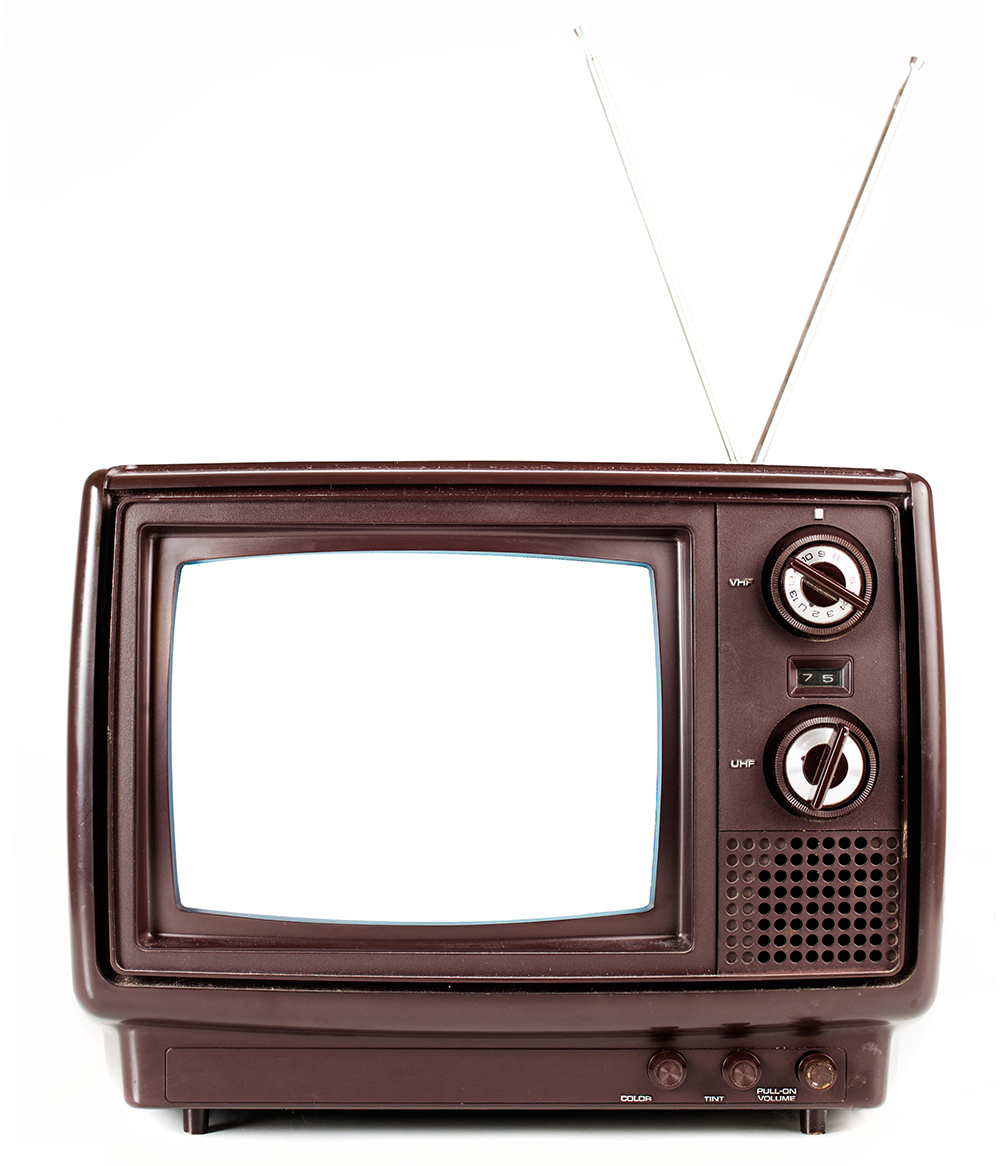I was 18 years old, settling into my first semester of college and working the opening shift at my job at a local dry cleaners. Mornings there were especially busy as folks lined up to hurriedly drop off bags of laundry on their way into work. I sorted through the heaps piece by piece, wrote up itemized tickets, and tediously pinned numbered paper tags onto each garment before throwing them into their respective bins — dry-clean only, lights, darks. We had a vintage tube TV — probably a 13-inch, with a bunny-ear antenna atop to facilitate less fuzzy reception, its exterior covered in denim fabric. It sat at the end of the long counter where customers left their dirty business suits and button-ups in piles. Since, like this day in particular, most morning shifts were worked solo, I kept the little TV tuned in to some morning show or another for background noise. Sometimes there’d be celebrity interviews or a topic that caught my interest. But mostly I slogged through, paying little attention as I poured stain remover on soiled collars and mindlessly managed the stacks. At 18, I didn’t know or care much about current events too far beyond my limited view. Until that morning when something way out of the norm happened. Something that connected me to the nation at large in a way I’d never felt before. Something that shook me to my core.
On that edition of NBC’s Today Show (currently viewable on YouTube), Matt Lauer’s interview with Hughes author Richard Hack was abruptly interrupted with breaking news about the World Trade Center. After a brief commercial break, Lauer and Katie Couric returned, cutting to live footage of smoke rising from one of the Twin Towers. “Apparently a plane has just crashed into the World Trade Center here in New York City,” Couric said. “It happened just a few moments ago … We have very little information available at this point in time, but on the phone we do have Jennifer Oberstein, who apparently witnessed this event …”
NBC’s first eyewitness spoke over the line. “It’s quite terrifying. I’m in shock right now,” Oberstein said. “I came out of the subway at Bowling Green, I was heading to work … I heard a boom, walked out and there was a big ball of fire. I’m now looking north at the World Trade Center, and it is the left tower looking north. I’m in Battery Park right now and you can hear the fire engines and the emergency crews behind me … pieces of the building are flying down … it’s horrifying … I see a major fire …”
I watched anxiously (as did most of America) as more information came in throughout the live broadcast — and another plane strike, a hit at the Pentagon — not knowing what this meant or what it could mean for the future. A few customers paused, momentarily glued to the TV with me, as the events unfolded. Do we go about our day as usual? Should we get home to our families?
Nearly 3,000 people died that day in New York City, Washington, D.C., and Shanksville, Pennsylvania. “Terrorism,” a word my young mind hadn’t been familiar with, would become part of everyday conversations. Would there be more attacks to come?
A 2021 Pew Research Center retrospective piece said, “A review of U.S. public opinion in the two decades since 9/11 reveals how a badly shaken nation came together, briefly, in a spirit of sadness and patriotism; how the public initially rallied behind the wars in Afghanistan and Iraq, though support waned over time; and how Americans viewed the threat of terrorism at home and the steps the government took to combat it.”
I recently wrote in this space how the early days of the Covid pandemic spurred a unity I hadn’t felt before or since. But that’s not entirely true. While I was too young to fully grasp the effects of 9/11, I do recall the camaraderie in its wake — the American pride, the flags waving from the back of pickup trucks and in front lawns “in a spirit of sadness and patriotism.” But I also remember the fear it caused, the cultural division, how suddenly so many were suspicious of people who didn’t look like them. Tragedy can bring us together as much as it can rip us apart.
As we reflect on that day, where we were, and how we felt, let’s hope the next inevitable tragedy fosters more of the former.
